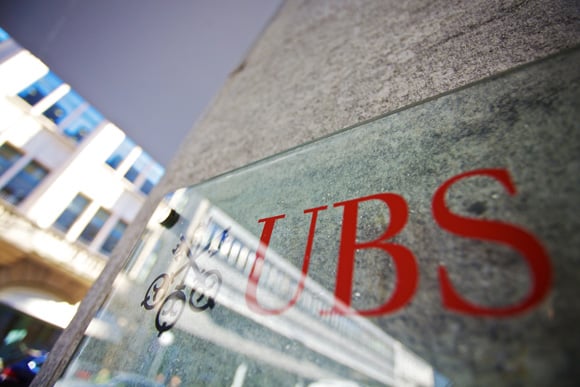Swiss bank may also have to reduce headcount even further
Bonuses at UBS AG's investment bank may be at risk after the company suffered a $2.3 billion loss from what it described as unauthorized trading.
Switzerland's largest bank said Sept. 15 that it may be unprofitable in the third quarter as a result of the loss, which exceeds the 1.21 billion Swiss francs ($1.4 billion) in pretax profit from the investment bank in the first half. The bank first estimated the loss at $2 billion, before raising it yesterday.
“A problem of this magnitude means they may be very strongly challenged to have any bonus pool at all,” said Steven Hall, managing director of Steven Hall & Partners, an executive compensation consulting firm based in New York. “It's pretty clear there are going to be a lot of people who are not going to get bonuses.”
Even before the trading loss, Chief Executive Officer Oswald Gruebel had announced steps to curb costs after a 33 percent slump in profit in the first half of the year. The Zurich-based company said last month it will eliminate about 3,500 jobs, with about 45 percent of the reductions coming from the investment bank. In July, UBS scrapped a target to double pretax profit from last year's level to 15 billion francs by 2014.
More Job Cuts?
“UBS wants to downsize its investment banking unit anyway and they were never going to pay big bonuses for 2011 in the first place,” Dirk Becker, a Frankfurt-based analyst at Kepler Capital Markets, said by phone. “With this trading loss there is now very good justification not to do so.”
A UBS spokeswoman in London declined to comment.
Gruebel, 67, and Carsten Kengeter, 44, who runs the investment bank, spent two years trying to increase earnings at the division after it recorded 57.1 billion francs in cumulative pretax losses in three years through 2009. They hired more than 1,700 people across the investment bank and brought in new business heads to replace those that left or were fired. They increased risk-taking to improve earnings opportunities.
The measures brought limited benefits. UBS's share among the nine biggest investment banks of revenue from trading stocks and bonds and advising clients on capital-market transactions and mergers more than doubled from 2009 through the first half of this year, yet it remained the lowest. UBS was aiming for annual savings of 2 billion francs by the end of 2013 through the latest job cuts.
‘Fictitious Positions'
“They may have to cut the headcount more because the savings from the reductions already announced will be wiped out,” said Christian Robbins, founder of executive search firm Nicholas Scott and a former trader. “They won't be able to justify bonuses without profitability. Because of UBS's history in the last two or three years, the incident affects them more than it would others.”
The loss came from trading in Standard & Poor's 500, DAX and EuroStoxx index futures over the past three months, the bank said in a statement yesterday. UBS has covered the risk from the trading and its equities business is operating “normally” again within its risk limits, the company said.
“The positions taken were within the normal business flow of a large global equity trading house as part of a properly hedged portfolio,” UBS said in the statement. The magnitude of the risk was masked by “fictitious positions,” UBS said.
Clawback Provisions
UBS introduced clawback provisions after the record losses during the credit crisis. Some of those rules permit the bank to not pay deferred bonuses when units or the group as a whole turn out to be unprofitable. Last year, senior bankers at UBS were deprived of 300 million francs of deferred bonuses after the company reported a 2.74 billion-franc loss for 2009.
UBS employed 17,776 people at the investment bank at the end of the second quarter, and 65,707 company-wide. It set aside 3.39 billion francs for personnel expenses at the investment bank in the first half, or 55 percent of the unit's revenue. Personnel expenses at the investment bank in 2010 amounted to 6.74 billion francs.
“They will have to make pretty sharp employee cuts, 10 to 13 percent more than planned,” Jason Kennedy, chief executive officer of Kennedy Group, a London-based search firm, said in a phone interview.
The investment bank last had a pretax loss in the third quarter of 2010, when what Gruebel called “very low levels of client activity” and a charge related to the bank's own debt hurt revenue at the division.
Bloomberg News--







